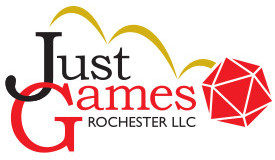It’s a tale as old as trading card games themselves: a Magic player rolls up to game night with their carefully crafted crab/snake/Rebecca Guay themed deck and faces an insurmountable wall of combos and tremendously powerful cards. The goofiest cards of Magic unfortunately fall flat in the face of Thassa’s Oracles and Dockside Extortionists. By the end of the game everyone leaves unsatisfied, one player upset that they never stood a chance, and the victor feeling like they haven’t earned the right to revel in a battle well fought.
And so, many Commander players have thought to themselves:
“There’s gotta be a better way of doing this.”
In short, the social contract is a way to ensure that everyone at the table has an engaging, interactive, fair, –and most importantly– fun game of Magic. It’s an ideal that everyone agrees to before the game ever begins, that says ‘We want everyone’s deck to have a fair shot at doing what it’s trying to do.’ This is done by making sure all the decks at the table are on a roughly even playing field. Just like how you wouldn’t bring a NERF blaster to a boxing match, you want to make sure that your deck is appropriate for the setting you’ll be playing in.
And how do you do that?
Usually the heavy lifting of upholding the social contract gets done in a pre-game conversation. Saying something as simple as “Hey, I want to play this pretty strong artifact deck I put together, is that alright?” can spark a conversation and set expectations for everyone at the table. You might be met with a response of “Oh cool! That means I can finally try out this sacrifice combo deck I’ve been brewing,” and from there, everyone picks decks that are roughly equal in terms of their gameplay abilities.
Having an understanding of what your deck is capable of is important to effectively matching yourself up with like-minded players. How do you determine that? The butt-kicking-ness of a Magic deck is not something that’s easily quantified, but there’s a few telltale signs of what causes a deck to be considered ‘strong’ or ‘weak.’
Your deck may be considered powerful if it:
- Is looking to end the game as early as possible
- Intends to search for and play specific combo pieces
- Contains many cards considered to be ‘staples’ of the format.
Your deck may be on the weaker end if it:
- Doesn’t have a specific deckbuilding goal
- Has a silly theme, like only playing crabs
- Contains many cards that are a ‘little off the beaten path’
There’s one thing that’s important to emphasize here: a deck being ‘weak’ is not a bad thing! Whether you’re casting Force of Will to stop someone’s Demonic Consultation or trying to sneak your way into a win with a lone Chimney Imp, there’s no wrong way to engage with the game if everyone’s having fun. Finding the way to play the game that’s right for you and your playgroup is the important part.
If the table’s having fun, then you’re doing a great job at upholding the social contract.
It’s as easy as that.
